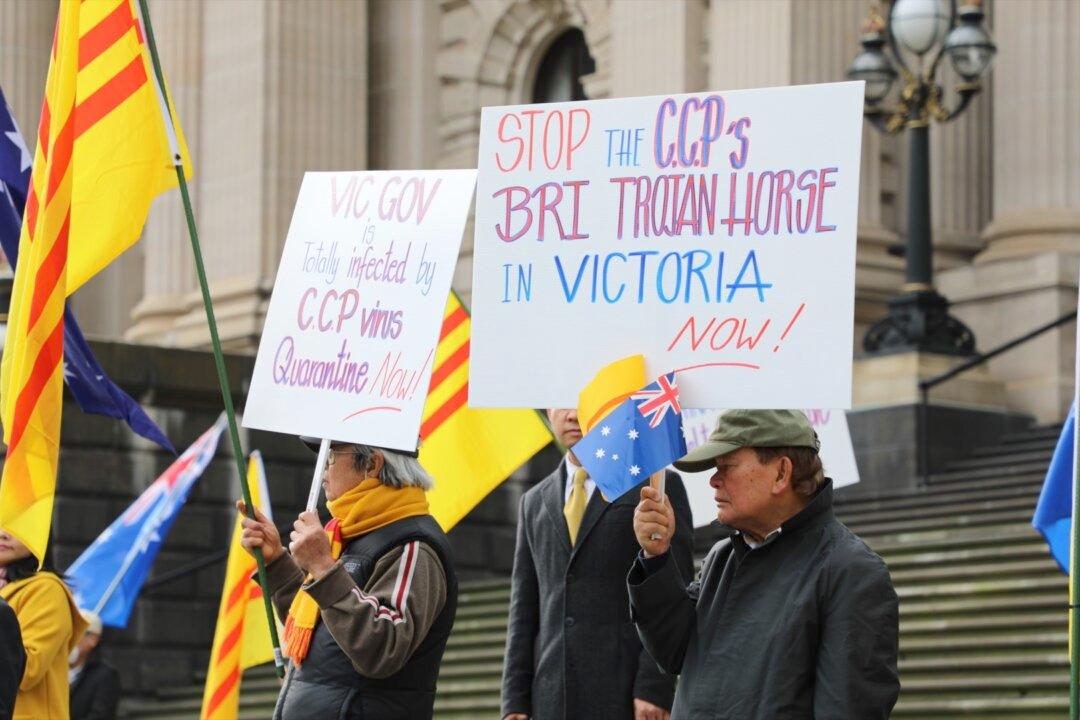Calls to abandon Victoria’s controversial Belt and Road Initiative (BRI) infrastructure agreement with Beijing were echoed by the Vietnamese Community on Sunday as public scrutiny continues to grow over what many have described as a “dud deal” agreement.
Speaking on the steps of Victoria’s Parliament House while maintaining social distancing, Bon Nguyen, president of the Vietnamese Association of Australia, iterated his community’s concerns over the BRI, which he said does not act in Victoria’s and Australia’s interests.





